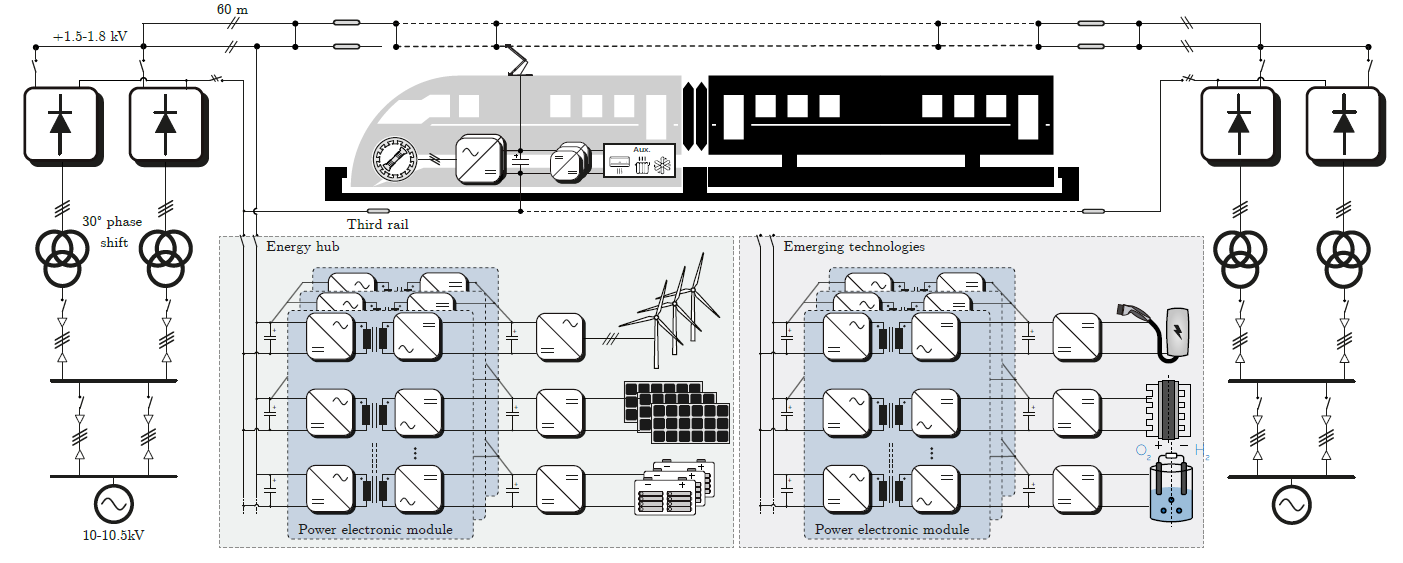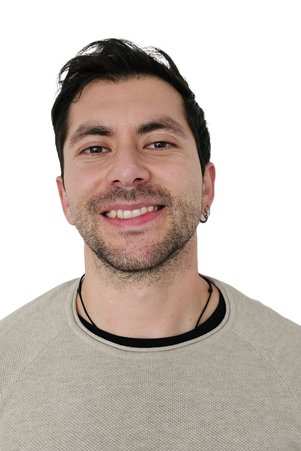Energy hub as part of a traction power substation for DC Railway systems

Project description
Globally, there is a trend for electrifying transportation sectors without endangering its expansion potential. Mainly, this electrification is done through projects that replace fossil fuel usage with renewable energy sources (RESs) and energy storage systems (ESSs). Public grid congestion is currently thought to be the primary growth obstacle. As a result, a significant increase in distributed generator research and initiatives have been conducted to get over the aforementioned problem. Direct current (DC) railway power systems are the base for operation of electrified railways, providing power to trains for propulsion, lighting, heating and controllers among others. Unfortunately, electrical DC railway networks were designed in a very conservative manner with almost no control degrees, so, managing the stochastic nature of renewable energy sources (RES) with energy storage systems (ESSs) for the power demand plays a fundamental role in the future development of traction power systems. In the light of the above, energy hubs have emerged as a strong candidate for improving the railway power network, providing power control, regenerative braking capabilities and public grid congestion avoidance. As part of the Rail4Earth project, WP 11-12, this PhD research is focussed in proposing and building a scalable and future proof configuration of the energy hub using state of the art power electronics and control theory.
• Analyse and understand the railway power system behaviour during daily operation and exploit modelling tools for building expected scenarios.
• Analyse and compare the existent power conversion solutions for improving the electrical network performance with energy hubs for dutch DC railway systems.
• Build a comprehensive multi-objective optimization analysis for sizing the energy hub’s components like photovoltaic panels, wind turbines, storage and power converters for an energy hub as a power substation inWierden with/without direct grid connection.
• Model, design and control a multi-active bridge power converter as a modular, scalable and flexible power unit, for effectively integrate RES and ESS into the DC railway network.
• Explore modulation and soft-switching techniques for achieving high power conversion performance in a multi-active bridge converters.
• Build a 50kW demonstrator for the proposed DC EH system.
PhD Candidate
Julian Rojas Villarroel - j.a.rojasvillarroel@tudelft.nl
Supervisor
Sebastian Rivera Iunnissi - S.Rivera@tudelft.nl
Promotor
Prof. dr. ir. Pavol Bauer - P.Bauer@tudelft.nl



